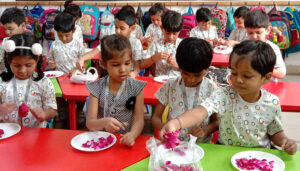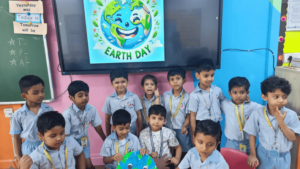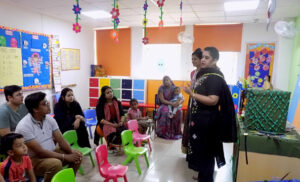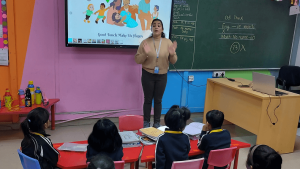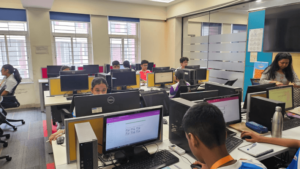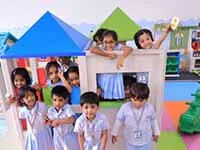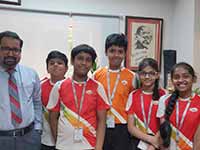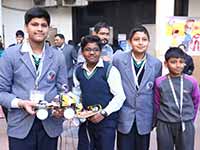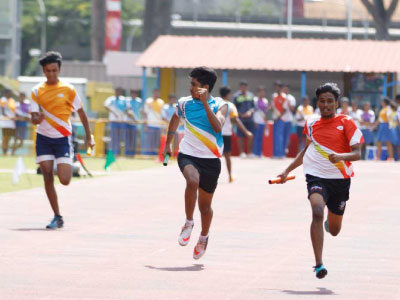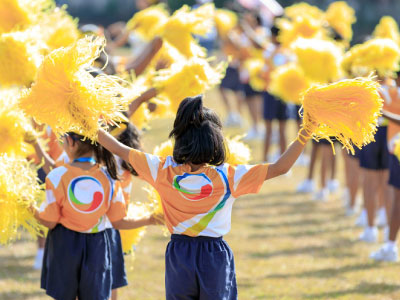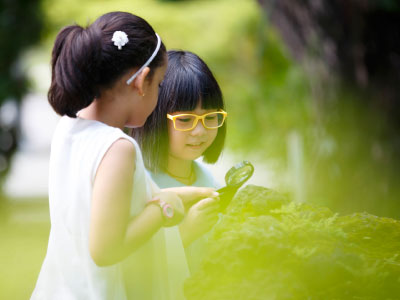Download our FREE Academic Calendar now! 📚 Start your child’s journey to success.
Each child possesses a unique set of strengths and weaknesses. As they become more self-aware, they start to understand themselves better. This helps them to perform well, both at school and in life.
Several studies have shown that self awareness skills can boost how effectively children learn. It’s also the foundation for building strong and healthy relationships. Let’s take a look at how self-awareness can guide a child towards success.
Academic Benefits of Self-Awareness
When children are self-aware, they have a better understanding of their learning style which allows them to utilise their time more effectively and ask for support if required. Self awareness psychology benefits the kids in classrooms in many ways:
- A child who knows they get easily distracted might choose to sit in the front row to stay focused.
- A student who feels anxious before exams may practice deep breathing to stay calm.
- And a learner who understands their unique learning style can adapt their study habits accordingly — for example, a visually inclined student might use diagrams and charts to grasp concepts more effectively.
Above all, it even develops reflective thinking. That makes it easier for children to pinpoint certain roadblocks in their own learning and perceive when they do not grasp a particular idea. Thus, teachers can make effective strategies to counter those challenges.
That’s why many leading international schools in Noida are focusing on building self-awareness from an early age—recognising that personal growth is just as important as academic achievement.
Personal Growth and Emotional Intelligence
Outside of academics, self-knowledge is the foundation of emotional intelligence—a set of skills now recognised as vital for success throughout life. As per stats, a person’s emotional intelligence level, also called Emotional Quotient (EQ), accounts for 58% of job performance.
Self-awareness is actually the portal through which one enters emotional intelligence. Consider how much more effective it is when a child learns from a young age to:
- Identify when they feel angry or sad
- Take a pause before reacting
- Assert their feelings in constructive ways
- Put themselves in others’ shoes
Self-awareness skills create resilience and positive relationships in a child. These are qualities that are valuable in and out of the classroom.
The Montessori syllabus understands the importance of self awareness. So, they focus on independent learning, self-correcting, and introspection, which automatically improve self-awareness from an early age.
Role of Teachers and Schools
Beyond academics, schools are significant spaces for emotional and psychological growth as well. Have a look at some effective teacher strategies to develop self awareness skills among students right from an early age:
- Incorporating emotion vocabulary instruction to enable students to label and identify emotions
- Employing reflective questioning strategies that cause students to scrutinise their thought process
- Enabling students to share learning difficulties in a non typically judgmental manner
- Offering growth-oriented, specific feedback as opposed to general compliments
Even simple activities such as weekly reflection journals and goal-setting activities count a lot. All these help students reflect upon their errors without apprehension and place value on improvement rather than perfection.
In many parts of India, especially in educationally progressive states like Uttar Pradesh, schools are adopting a more holistic approach to education. As part of this shift, many CBSE schools in Uttar Pradesh allocate time for mindfulness sessions and social-emotional learning (SEL) programs.

Parental Support
As far as emotional development is concerned, parents are a child’s first teachers. So, developing self-awareness skills will not be that difficult for them. Here are a few easy ways parents can assist:
- Discuss openly your own thoughts and feelings.
- Ask reflective questions. Don’t ask “How was school?” but instead ask “What made you proud today?” or “What was a challenging moment, and how did you resolve it?”
- As a parent, you must acknowledge the efforts rather than focusing solely on results. That encourages children to improve their processes.
- Encourage children to write down their thoughts in a journal to notice patterns in what they’re feeling and doing.
- Create emotional safety for children to express all feelings without shame.
Parental support, in conjunction with a school’s initiative, is necessary to create a supportive environment where self-awareness naturally develops.
Also Read: Developing Care for the Environment: Practices for Sustainability in Schools
Conclusion
Self-awareness is the intangible foundation upon which all other educational success rests. When children learn to know their learning styles, they gain access to rich internal resources that can refine their learning approach. Eventually, they will be able to take genuine control of their own lives.
At GIIS Noida, we strongly feel that education is all about cultivating a child’s complete self. We follow an innovative curriculum that focuses on developing self awareness skills right from the early years so that children not only perform well academically but also become reflective. Let’s create a bright future for your child!
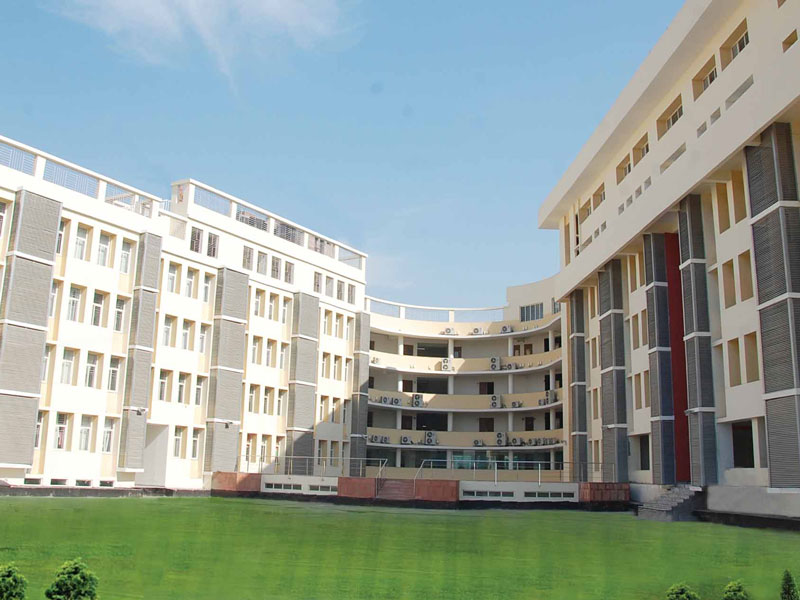 Noida Campus
Noida Campus



